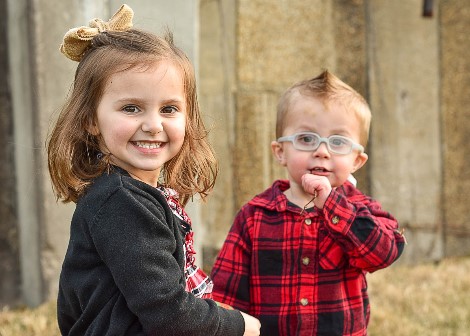Toddlers love playing and exploring the world, learning how it works and where they fit in it. It can be a challenging time for parents and carers as toddlers want to become more independent but still have lots of things they need to develop, practice and learn.
It can also be a wondrous time as your toddler encourages you to see the world from their perspective. Communicating clearly with your toddler can help things go more smoothly.
Tips for communicating with a toddler
- Toddlers can get very involved in what they are doing. Calling out from another room probably won’t get their attention!
- Get close and get down to their level. Make eye contact and use your child’s name. This will help your toddler focus on you and your words.
- Toddlers find it hard to take in a lot of information at once. Long instructions are tricky for toddlers to remember. Keep sentences short and to the point.
- Use positive language. Limit your use of the words ‘no’ and ‘don’t’. For example, say “Yes, when I’ve finished this” rather than “No, not now”.
- Tell your child what you want, rather than what you don’t want. For example: “Please walk on the path” rather than “Don’t walk in the garden” or “Please shut the door quietly” rather than “Don’t slam the door”.
- Be specific when you praise and encourage your child. For example, rather than “Well done” or “Good girl/boy”, say “You did a great job packing your toys away” or “I can see you are trying really hard to wait quietly”.
- Offer two choices so your toddler feels like they have some control. For example, “Do you want to get out of the bath by yourself or would you like me to help you?” or “Would you like to wear the blue jumper or the red jacket?” Giving more than two choices is confusing for toddlers.
How you talk to and about your child matters
There is an old saying “sticks and stones may break my bones but names will never hurt me”. But children CAN be hurt by adults talking to them, and about them, in negative ways.
Children need to hear that the adults in their lives think they are okay. You can help children feel good about themselves by the way you speak and the things you say. Hearing positive things helps children feel more confident and helps them try even harder to get our respect and approval.
When adults use helpful and supportive words, children feel loved, worthwhile and valued.
Children who feel this way are more likely to be confident and try new things, recognise when they do well, value and respect themselves and others, feel hopeful about the future, enjoy school, take part in sport and other activities and enjoy being healthy.
Being positive and giving praise
Children need to know your love does not depend on how they behave.
When adults use negative words to or about children, they are usually talking about the behaviour they don’t like, not the child. But the child hears the words as being about them and this can make them feel bad and worthless. They often show this by behaving badly, even though adults may not see this as a response to the hurtful words the child heard.
It is important to separate the child from their unacceptable behaviour. Let the child know you will always love them no matter what, but you don’t like their behaviour.
Praise your child and ‘catch them being good’. Use positive, honest comments that are specific about what you like. This helps your child feel good and be more confident next time. For example, “I am really impressed by how hard you worked on that”, “It was lovely to see you so happy when you did that”, “I liked the colours you used” or “You should be proud of yourself for finishing that. I’m proud of you!”
Want to know more?
The Raising Children Network – Toddlers connecting and communicating
Talkable – Your toddler’s development 1–3 years
If you still have questions, contact our Parenting Line

